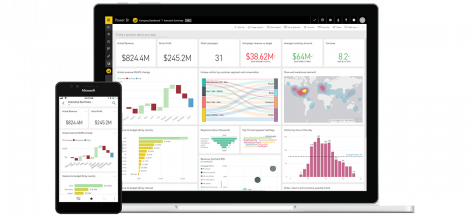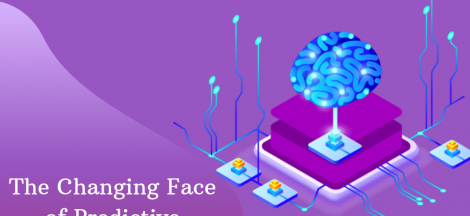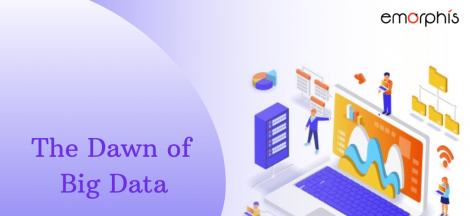Overview
Industrial automation is not a new term, everybody is already aware of how various industries are being benefitted from automation; but now we can say that it’s the start of Industrial automation 2.0; imagine how would it really look like, when the industrial pieces of equipment know as to when they will break down or can fine-tune to avoid damage and continue to work or if they can identify defective parts and repair them by calling off a technician?
Considering the evolution of new computing technologies and artificial intelligence, Industrial automation 2.0 isn’t just a buzzword. Instead, we are in the phase wherein the computers now learn from experiences as an alternative to programming the computers so that they understand what needs to be done. This learning experience of computers is popularly known as “machine learning”, a breakthrough in computing technology. Machine learning is not new, but definitely has achieved impetus because of its ability to make use of available data, adapt from previous technologies, and deliver steadfast results. Big data analytics, data mining, and their implementation have added more to the machine learning technology.
Lets do Exemplification
To understand the concept, let’s take an example from daily life. As an internet user, while browsing you must have come across product recommendations from Amazon or a fraud detection pop-up that appears on the screen. Moreover, these are the basic machine learning applications. Overall, machine learning is a kind of artificial intelligence application that enables computers to learn without any explicit programming. Also, these applications create a system that assists in analyzing complex data on a large scale, allows organizations to avoid unfamiliar risks, and recognizes beneficial opportunities.
Machine learning is a combination of basic and advanced algorithms, assembly modeling, mechanization and iterative process, and data research abilities that take systems beyond the common applications such as informed diagnostics in healthcare, trading, and fraud detection in the financial sector, or working as per consumer behavior in retail. Also, with this machine learning is now finding its way to the manufacturing domain, to assist in increased and efficient production and operation within the industrial unit.
Industrial automation 2.0 in Manufacturing Industry, Impact of AI and Machine learning
For the manufacturing industries to stay competitive with other domains there is a serious need for them, as a matter of fact, to come out of their legacy systems by automating their traditional processes. Every manufacturer needs to have the potential to implement machine learning applications, moreover, to achieve predictive accuracy in production. So far, manufacturing and industrial automation units have been slow in adapting machine learning at their facilities.
With the growing changes in consumer behavior regarding customization and also product quality, it is difficult for manufacturers to make changes in the production system (like re-programming or re-tooling the application) in a short time. Moreover, this is where machine learning benefits the manufacturers. The machine learning application examines and performs maintenance on the production apparatus, also optimizes the production, and supply chain efficiency by reprogramming the unit computers, and assists in delivering products on time.
Many known manufacturing companies have utilized various forms of machine learning applications in their manufacturing also, industrial automation facilities and have achieved positive business outcomes. One such manufacturing facility is Siemens'; which uses neural networks and in fact, open IoT systems to collaborate their design, manufacturing, production, supply chain, and distribution teams into one scalable system.
Industrial automation 2.0: Immediate positives for the Manufacturing Industry
A. Increased production volume
Manufacturing units can leverage machine learning and data analytics for their process improvements. These systems assist in predicting yield rates at various levels of the supply chain thereby minimizing the cost of raw materials and shielding brand quality. Comprehensive quality data can reduce rework and improve operational efficiency leading to manufacturing sustainability. Prediction-based production capacity allows sustainable and profitable packaging. Machine learning tools optimize scheduling, and operator productivity and help in gaining production visibility.
B. Asset Performance Management
The AI application provides real-time operational intelligence that backs the product management lifecycle which includes process integration, automation and collaboration insights, monitoring, and diagnostics.
C. Engineering and Finance Data Optimization
Manufacturing industries do not have interlinked IT systems. Thus it gets difficult for multiple teams to collaborate on a particular project. The machine learning solution provides appropriate data for factory and demand-side management. The data provide insights into production workflows, expenses, work-in-progress, and inventory optimization. Moreover, determining on-time customization and delivery to fulfill demand at lower cost.
D. Improved repair, maintenance, and overhaul performance
Integrating machine learning applications, databases, and programs on a single cloud platform helps manufacturing staff access business processes. Also, details of service and maintenance of industrial equipment. This connected architecture assists in seamless communication between Intelligent System service agents, local technicians, and remote servicing experts. One of the finest examples of IoT service architecture being used is integrated with Microsoft Azure for better performance.
E. Enable better-conditioned monitoring
Machine learning analytics improves the production process and equipment effectiveness by integrating sensor data on machines. Some of the operating parameters include oil pressure, temperature, air pressure, etc. These parameters help in detecting quality and performance, identifying bottlenecks, and the probability of equipment failure.
F. Innovating and enhancing product /service quality
This is one of the major challenges of any manufacturing unit- quality. Implementing machine learning at industrial automation units determines the factors that impact product quality.
Concluding View
Machine learning is definitely a revolution in manufacturing and industrial automation and is certainly making a difference. The manufacturers aim towards customized production to promote manufacturing-as-a-service. They are moreover, turning to machine learning to select better machinery, and training of the manufacturing staff, and vendors. Also, suppliers, optimize pricing and improve sales strategies.
Machine learning is considered an uprising phase in supply chain business intelligence. However, the implementation has been slow over the last few years. In fact, it calls for a huge cost and time. The new data infrastructure would undeniably occupy a place in the supply chain process.
How Emorphis can help
Emorphis is a leading Consulting & Software Development Partner with a vision of empowering enterprises to execute their business dreams and strategies in the digital era. We are not just a technology company but an end-to-end solution provider. Most importantly, specialize in Data Science, the Internet of Things, Cloud Infrastructure Management, and Digital Services Implementation. With our high spirit of innovation, passion, and dedication; we have been able to transform enterprises to the upswing. Moreover, leap into a new world with fast, secure, intelligent, automated, and scalable solutions.
We are 7 years young but have immense experience that we are nurturing various businesses by offering solutions in niche worlds like Blockchain, IoT, Artificial Intelligence, Augmented Reality, Virtual Reality, etc.
To inquire more about our services and offerings reach out to sales@emorphis.com







